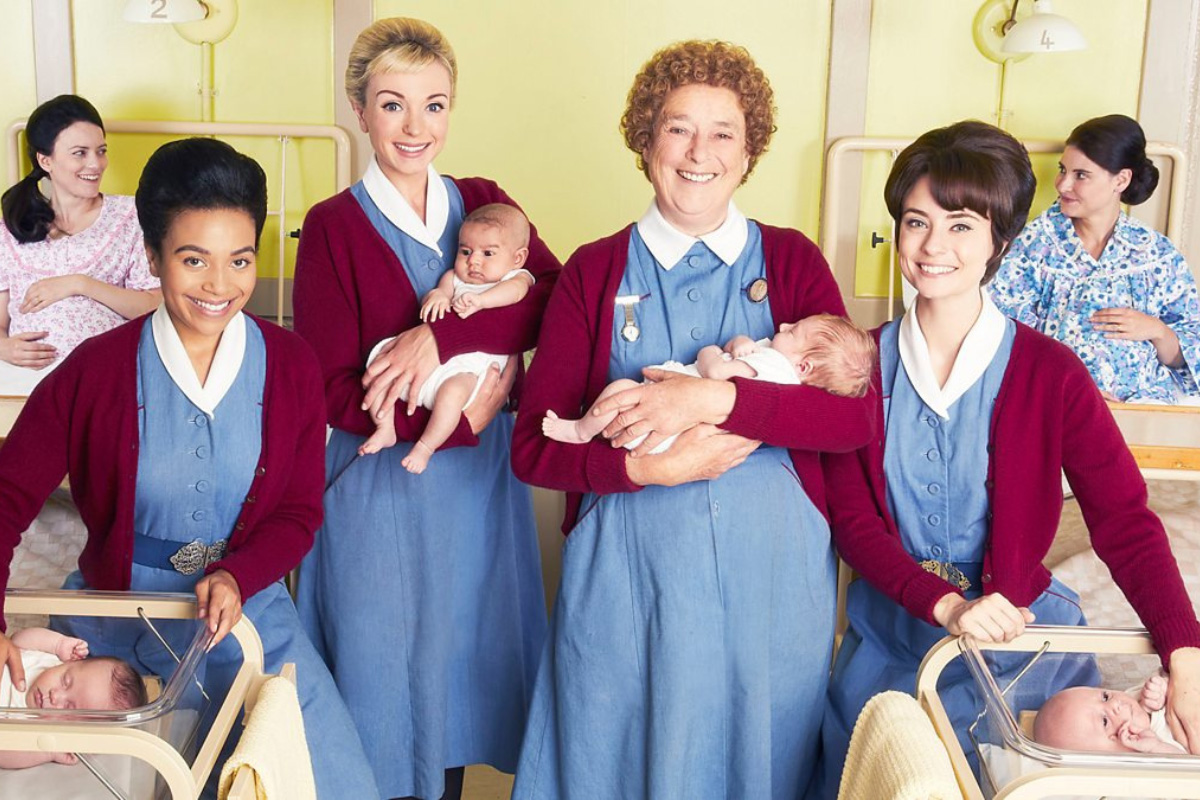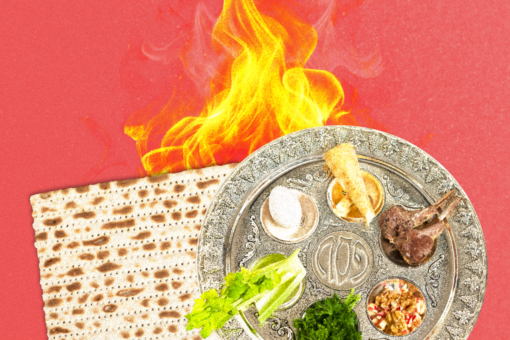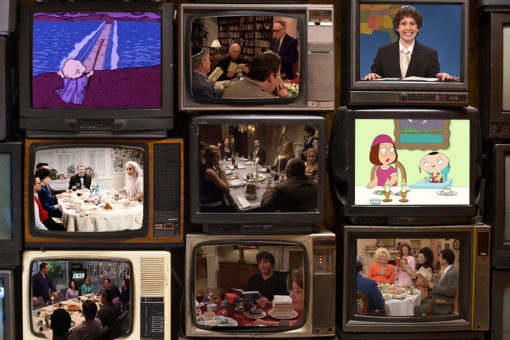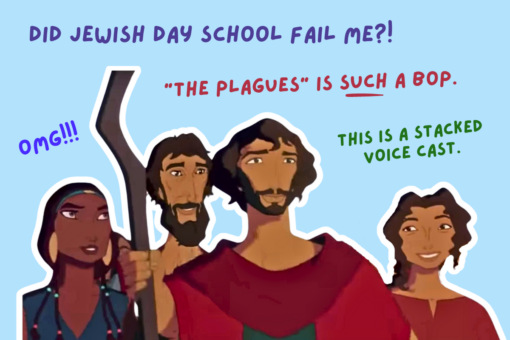Light spoilers ahead for season four episode 11 of “Call the Midwife.”
The BBC show “Call the Midwife” is one of my all-time favorites. It tells the story of a group of nurse midwives and nuns in London in the 1950s and 60s. Each episode features new characters the midwives help and new babies being born. Storylines are interwoven throughout each episode — while one nurse navigates the language barrier with a South Asian expectant mother, another helps a mother with her breastfeeding difficulties.
I especially appreciate the way the show portrays the Holocaust, which was very recent history in the 1950s and ‘60s. Episode four of season 11, set in 1967, made the aftermath of this genocide vivid for me in a way few other shows have.
It follows Sammy Rosen (Alex Waldmann), a Polish Jew and soon-to-be father who carries memories of his time in a concentration camp. Sammy’s scenes paint a picture of a young man coming to terms with his past, the beginnings of intergenerational trauma, and Holocaust representation I had never seen before.
We first see Sammy’s Holocaust experiences haunt his present when his wife, Orli (Alexis Peterman) goes into labor. Sitting at the kitchen table, hearing Orli scream, Sammy becomes increasingly distressed. Orli is about to give the final push when Sammy bursts into the room and yells “Get away from her! Just get away from her! You’re hurting her!” Dr. Turner (Stephen McGann), the main doctor of the series, takes Sammy to the other room, where he sits on the floor, panting. He says, “They’re here. Can’t you hear them screaming?” Dr. Turner asks, “Who?” Sammy replies, “All of them.” Orli’s Zayde Joseph, who lives with them, tells Dr. Turner, “He was in a concentration camp.”
Sammy rolls up his sleeve to show Dr. Turner the numbers tattooed on his arm and corrects Zayde, “Extermination camp… No one was meant to come out of Auschwitz alive.” Dr. Turner says, “But you did.” We then hear a baby crying, Sammy’s son. Dr. Turner continues, “You did! And that is the sound of your baby crying.” Sammy enters the bedroom and sees his wife and child. He kneels down next to his wife and son and cries — a harsh contrast between life and death.
Dr. Turner later returns to check on Orli and the baby. Sammy goes to get coffee for them, and Orli tells Dr. Turner that Sammy hasn’t slept or eaten, and he won’t take off his heavy coat. When pressed about the coat, Sammy tells Dr. Turner and Sister Hilda (Fenella Woolgar) that he “must be ready to leave.” This is because, Sammy tells them that his family “left too late. They emptied the ghetto…put us all on the train.” Sister Hilda asks, “Where did the train take you?” Sammy, after hesitating for a long moment, describes entering Auschwitz, where he saw his mother and little brother sent to the gas chambers.
Watching these scenes, I was struck by how young Sammy was: a man in his 30s, just having his first baby. As a member of the zillennial generation, I have been fortunate to hear many survivors speak — but they have always been elderly and thus somewhat removed from me. Seeing Sammy and hearing his words as someone not that much older than me gave me new access to a story I have so often heard and read.
Later, the Rosens begin to discuss the baby’s bris. Sammy seems reluctant to have it at all, and argues with Orli, who wants to give their son a Hebrew name. “What is wrong with an English name?” Sammy asks. “Does everybody need to know he is Jewish everywhere he goes?”
Though they ultimately name the baby Yoel ben Shmuel — or Joel Rosen — Orli explains that this is “his Hebrew name. He’s going to be called George for everyday and going to school,” because this is what Sammy wants. Sammy wants his son to be safe in a way that he was not. Even in a festive moment, he is not at ease.
Following George’s bris, Sister Hilda finds Sammy hiding downstairs. Sammy tells her that the party made him realize just how cut off he was from his heritage. He recalls how he learned his bar mitzvah Torah portion secretly in the concentration camp, but never went through with the ceremony because the rabbi and his father were murdered.
When Sammy wonders aloud why his father left him all alone, Sister Hilda responds, “Because he wanted you to live.”
Again, life and death, father and son. As Sammy explores his memories with Sister Hilda, it becomes clear that they have informed his decisions about his son. I can see these kinds of repercussions in my own life. For example, my mother always made sure we had our passports up to date as children. I always thought it was strange, since we never traveled internationally, but I understand now that it was because she wanted to be ready to flee the country if need be. She was born in 1950s New York City; she knew survivors who were still young, and she saw how it affected their parenting and children.
Despite all he endured and his fears of the future, Sammy still chooses to try and reconnect with his Judaism and his Jewish identity. The final scene of Sammy’s story shows him finally becoming a bar mitzvah, while Orli looks down on him from the balcony, baby George in her arms.
We are the last generation to be able to hear some of these stories told firsthand. As the number of living survivors dwindles, this is the kind of Holocaust representation we need. This portrayal is not only accurate and authentic; it also reanimates the story of survivors in a way that allows young people to connect with it.
Sammy’s episode makes us reflect on what it means to be Jews post-Holocaust; it shows how the decisions of our parents and grandparents were manifestations of this intergenerational trauma. We can see how their loss continues to shape our stories. We can also see hope, faith — and love. Love was the force behind many of these tough decisions: those of Sammy’s father, Sammy himself and even my own mother. As their children, we inherit the burden, but we also inherit the heritage and identity they passed down to us.



